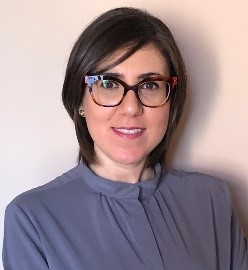Strategies to Target Microbial Attack in Chronic Skin Wounds: From Classic to Innovative Approaches
A special issue of Bioengineering (ISSN 2306-5354). This special issue belongs to the section "Regenerative Engineering".
Deadline for manuscript submissions: 31 July 2024 | Viewed by 1196
Special Issue Editors
Interests: skin dysbiosis; innovative skin therapies; therapeutic textiles; skin regeneration; 3D skin models; bioactive compounds
Interests: biomaterial design; polyurethane synthesis; bioprinting; wound healing; drug delivery systems; multi-stimuli-responsive polymers; bioink design; cell culture; tissue modeling; inflammation modelling; hydrogels
Special Issues, Collections and Topics in MDPI journals
Special Issue Information
Dear Colleagues,
Chronic hard-to-heal wounds such as diabetic foot ulcers, decubitus ulcers, venous leg ulcers, and post-surgical wounds are still a major burden not only for patients and caregivers but also for the healthcare system. A key aspect underpinning this pathological condition can be correlated with the fact that chronic wounds are usually colonized and infected by several types of microorganisms, namely bacteria and fungi members, which may result in biofilm formation via microbial aggregation.
Specifically, the presence of polymicrobial biofilms, which foster pathogenic microbial growth, disrupts and makes difficult the proceeding of the coordinated events proper of the wound healing pathway. Hence, bacteria colonization plays a crucial role in the pathogenesis of chronic wounds, leading to impaired tissue healing and significantly compromising the life quality of many patients who suffer from this condition. Currently, the gold standard treatment is based on the use of high dosages of antibiotics, both orally or in situ administrated. However, this therapeutic approach has recently suffered a setback due to undesired side effects on non-target tissue while increasing antibiotic-resistant bacterial species. Therefore, in order to overcome these critical concerns, the design of innovative, efficient and antibiotic-free treatments has become increasingly important to promptly tackle the negative impact that microbial attacks and infections have on wound healing success.
In this sense, this Special Issue aims to critically discuss the available strategies to target microbial attack in chronic skin wounds by bringing together contributions from classic to innovative approaches. Moreover, particular interest will be devoted to works dealing with the engineering of new drug delivery carriers (e.g., smart hydrogels, nanosystems, membranes), and patient-specific approaches by implementing green chemistries and fabrication technologies while giving value to waste- and agricultural-derived biomaterials (e.g., alginate, zein, hyaluronic acid), natural compounds, and therapeutic agents (e.g., polyphenols) aiming an environmental impact reduction.
We welcome the submission of original research articles and short communications, as well as reviews, mini-reviews and systematic review articles.
Dr. Cláudia S. Oliveira
Dr. Rossella Laurano
Guest Editors
Manuscript Submission Information
Manuscripts should be submitted online at www.mdpi.com by registering and logging in to this website. Once you are registered, click here to go to the submission form. Manuscripts can be submitted until the deadline. All submissions that pass pre-check are peer-reviewed. Accepted papers will be published continuously in the journal (as soon as accepted) and will be listed together on the special issue website. Research articles, review articles as well as short communications are invited. For planned papers, a title and short abstract (about 100 words) can be sent to the Editorial Office for announcement on this website.
Submitted manuscripts should not have been published previously, nor be under consideration for publication elsewhere (except conference proceedings papers). All manuscripts are thoroughly refereed through a single-blind peer-review process. A guide for authors and other relevant information for submission of manuscripts is available on the Instructions for Authors page. Bioengineering is an international peer-reviewed open access monthly journal published by MDPI.
Please visit the Instructions for Authors page before submitting a manuscript. The Article Processing Charge (APC) for publication in this open access journal is 2700 CHF (Swiss Francs). Submitted papers should be well formatted and use good English. Authors may use MDPI's English editing service prior to publication or during author revisions.
Keywords
- smart drug-delivery platforms
- antibiotic-free approaches
- innovative infection treatments
- natural resources
- green chemistry
- naturally derived therapeutic compounds
- in vitro biofilm models
- 3D skin bioprinting
- biomaterial design
- skin personalized approaches
- tissue regeneration







